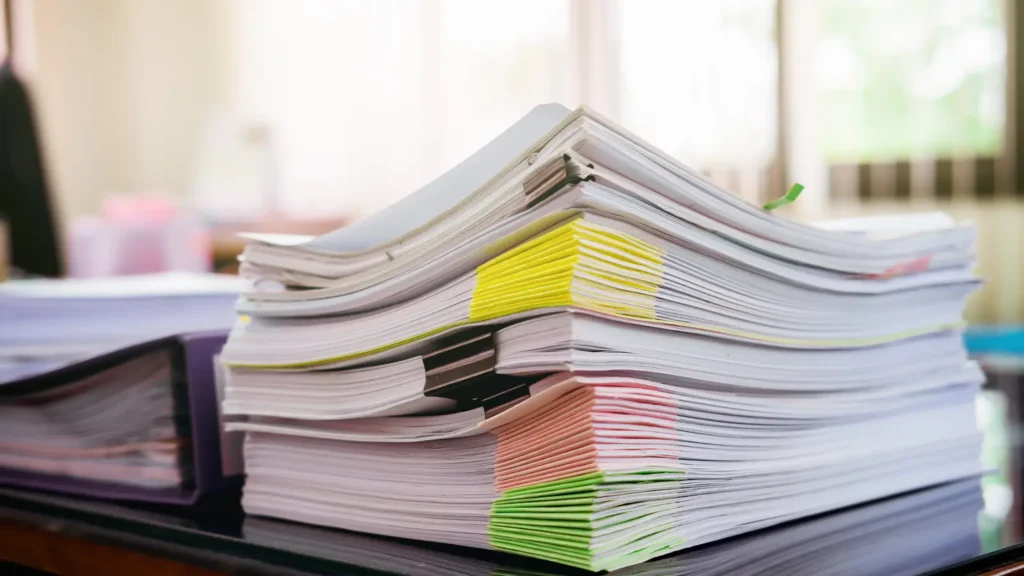The Scenario: You’ve Been in an Accident
Imagine you’re driving home from work when another car runs a red light and crashes into your vehicle. The impact leaves you with a painful back injury and whiplash. In the days following the accident, you’re focused on your recovery and don’t think to document your experience. When you finally meet with a personal injury lawyer three months later, you struggle to recall specific details about your pain levels, medical appointments, and how the injury affected your daily life. This lack of documentation makes it challenging for your attorney to build a strong case.
The Importance of Documentation
This situation is not uncommon. Many people who suffer injuries in accidents don’t realize the importance of keeping detailed records. While it’s not absolutely necessary to document everything, having a comprehensive injury journal can significantly improve your chances of a favorable outcome in a personal injury case. The reasons for keeping an injury journal are that specific details are needed to prove extent of injury and damages, and because memories fade with time, written reminders and records are needed in order for people to be able to testify to details at trial, which will be two or more years after the accident.
In this blog, we’ll go through best practices for keeping a personal injury journal including how to protect the confidentiality of your journal from opposing counsel, how often to journal, and what to include.
How to Protect the Confidentiality of Your Journal
When you start your personal injury journal, label it “Information for My Attorney”. The purpose of this label is to protect its confidentiality by the attorney-client privilege, as a communication between you and your attorney.
In addition to the above, make sure any and all information in that journal stays in it. Many clients damage their claims by posting about their injuries, accidents, or ongoing legal matters on social media. Insurance companies and opposing lawyers actively search for and can use these posts against you in court. Even seemingly harmless updates about your activities or recovery can potentially hurt your case. For your own protection, keep all details about your accident and injury private and documented only in your personal journal.
How Often You Should Make a Journal Entry
Make a general entry approximately every 2-4 weeks. In a general entry, include information on your present symptoms, medication, treatment, and particular problems caused by your injuries, such as things you can no longer do at all or can only do to a lesser extent. In addition to these general entries, there are other times you should make a specific entry, such as when you have a doctor’s visit. We break down all the information you should journal about in the next section.
What to Include in Your Injury Journal
Accident Details
As soon as you can after the accident, write down everything you can remember about the incident. Include the date, time, location, weather conditions, and any other relevant details. If possible, take photos of the accident scene, your injuries, and any property damage. A police report will be one of the most important things you can get in the days and weeks after an accident.
Pain Levels
Start tracking your pain levels daily. Use a scale from 1 to 10 to rate your pain, and describe the type of pain you’re experiencing (sharp, dull, throbbing, etc.). Note which activities exacerbate your pain and how it affects your daily life. For example, can you reach and easily grab items on high or low shelves in your kitchen? Do you have difficulty holding a gallon of milk? Can you lift your legs into the shower? Do you have difficulty walking up or down stairs, or standing for long periods of time?
Medical Appointments
Keep a record of all medical appointments, including the date, the healthcare provider’s name, and what was discussed or done during the visit. Save all medical bills, prescriptions, and receipts for medications or medical equipment.
Remember to tell your doctor(s) each symptom and problem you are having at that time, because if you do not, then it will not be in their records, and if it is not in their records, your doctor will not be able to remember it and testify to it. The defendant’s insurance company’s argument is that if it is not in the doctor’s record, it didn’t happen.
Make entries about physical therapy visits. These are important because it is here that you will be trying to do things physically and will be having trouble doing them at all or partly. Make note of problems you are having in doing the exercises.
Impact on Daily Life
Document how your injuries impact your daily life. This could include difficulties with personal care, household chores, normal day to day activities like going to the grocery store or recreational activities you can no longer enjoy. If you’re unable to work, keep track of the days you miss and any lost wages.
Make a specific entry any time something different or notable happens, such as when you first walked, when some stranger noticed your disability and remarked about it or offered to help you, when you tried to walk without help and fell, etc. These specific events are particularly important because they are spontaneous and make an impression of truthfulness.
Emotional and Psychological Effects
Note any emotional or psychological effects of the accident, such as anxiety, depression, or sleep disturbances. Keeping a notepad by the bed to quickly chronicle any overnight issues is a simple way to make sure you write down what is happening. These can be important factors in your case.
Communication Records
If you have any communication with insurance companies or the other party involved in the accident, document these interactions, including dates, names of people you spoke with, and a summary of the conversation.
Document Organization
Keep all accident-related documents in one place. This includes the police report, insurance correspondence, and any other paperwork related to your case.
The Benefits of Keeping an Injury Journal
While maintaining such detailed records may seem daunting, it can make a significant difference when you consult with a personal injury lawyer. At McGlone Law, we’ve seen firsthand how a well-documented injury journal can strengthen a case and lead to better outcomes for our clients.
Your lawyer should also be checking in with you at least every 30 days to discuss your injuries. By keeping this journal for your attorney, you will be able to easily share updates with your attorney and be sure you didn’t leave anything out. Documenting how your injuries are affecting you on a day-to-day basis can help strengthen your case and the damages you’ll be able to recover.
Remember, you don’t need to have perfect documentation to seek legal help. Even if you haven’t kept detailed records, an experienced personal injury attorney can still assist you. However, the more information you can provide, the better equipped your lawyer will be to build a strong case on your behalf.
Seeking Legal Advice in Indiana & Illinois
If you’ve been injured in an accident in Indiana or Illinois, don’t wait to seek legal advice. Contact McGlone Law today for a consultation. As a trusted law firm, we’re here to fight for the compensation you deserve.


